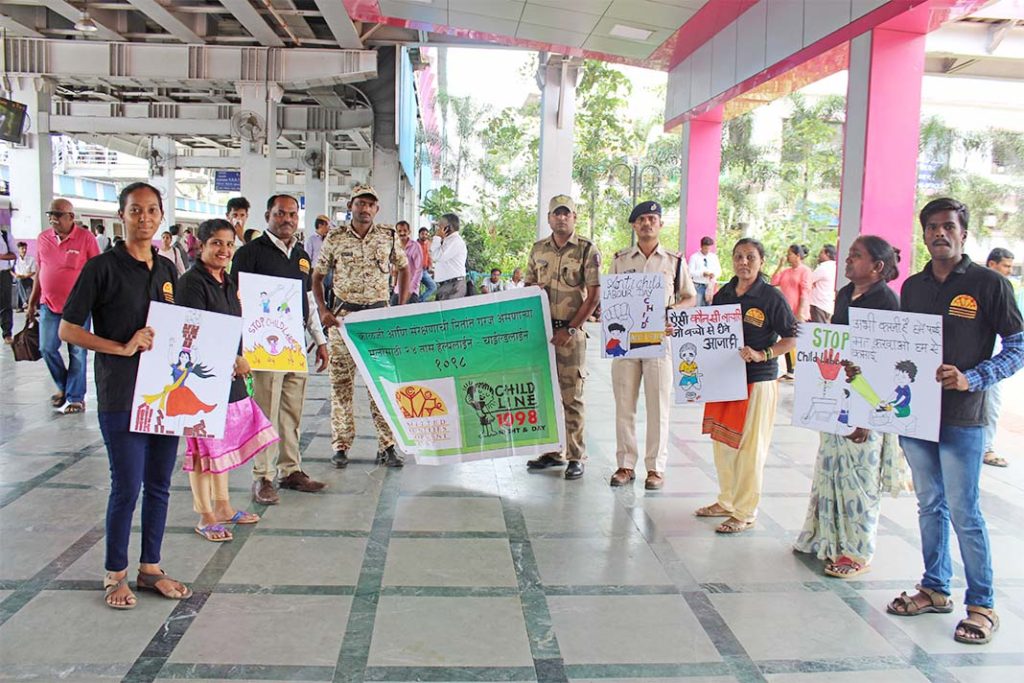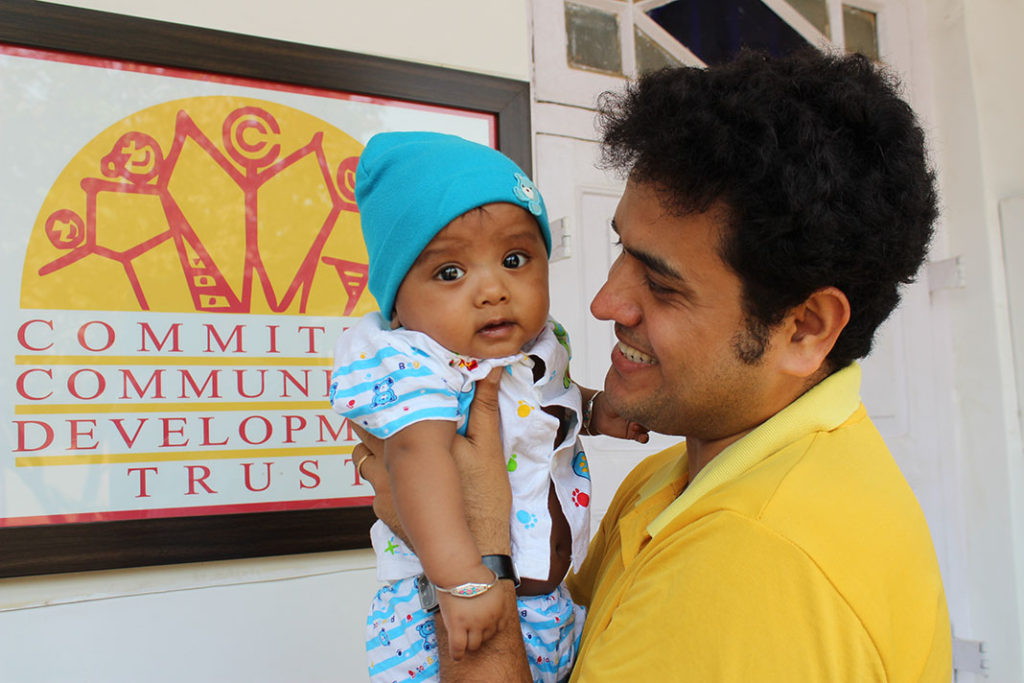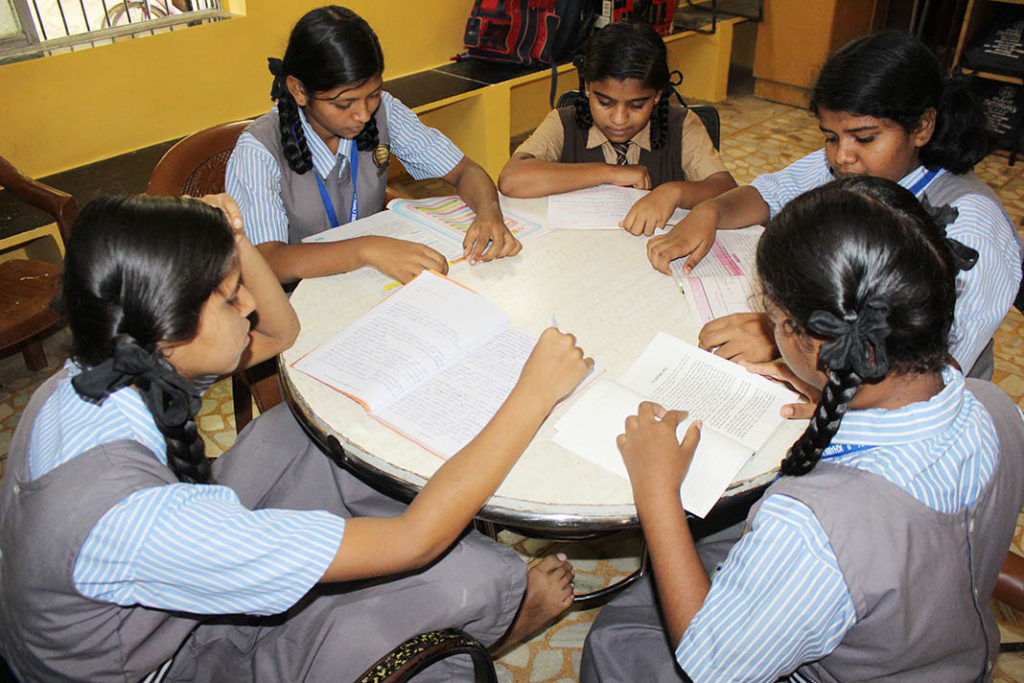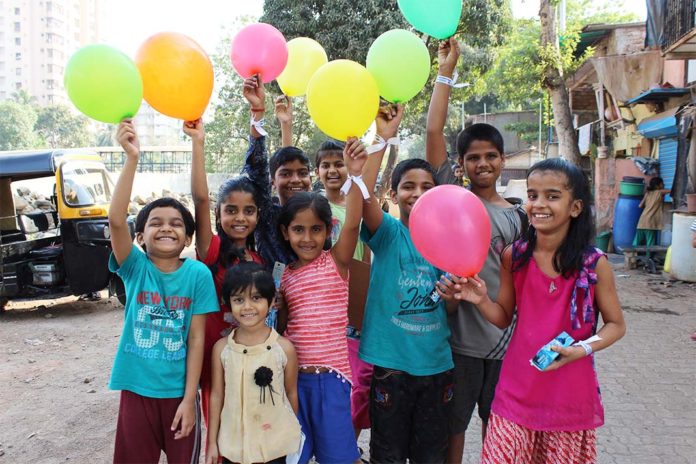Every child needs protection. And this protection is not only from physical, mental or sexual abuse but also from hunger, poverty, diseases and vices. This is the aim of the Committed Communities Development Trust (CCDT), a Non-Governmental Organisation (NGO), based in the heart of Bandra at Chapel Road.
“Every Child Counts” is the vision followed by the members of CCDT, as they have been striving to help children and women since 1990. To date, they have provided food, clothing, shelter, education, counselling, legal support, documentation, health treatment, life skills and much more to over 570 children right from the age of 2 to 21 years and above.
Children in need of help
Most of these children are HIV/AIDS positive, orphans, homeless while some are either physically or mentally challenged or have psychological trauma.
At present, over 35 children between the age group of 2 to 12 years are being nurtured at Ashray Shelter Home, opposite Bhabha Hospital, Bandra. Once these children turn 13, they are shifted to Ankur-Asmita, their shelter home at Badlapur for girls while boys are moved to Aakaar Centre at Khandala. In addition, when these teenagers turn into young adults at 18, the girls are shifted to Transit Home at Badlapur and boys to Umang Home at Mahalaxmi till the age of 21.
After 21, some children are later integrated with their parents or extended families. While, some have now turned into independent adults who have completed their education, have decent employment and are living on their own or sharing an apartment with the other youth.

Missing Children
Over 109 children have been rescued in the last month from the CSMT railway station by CCDT workers along with the police force. In an initiative to help missing and runaway children, CCDT started the National 24 hours free Child Helpline 1098 for children in need of protection from exploitation and abuse.
Who are missing children? How does CCDT help and rescue?
Members of CCDT along with the Railway Police Force (RPF) and Government Railway Police (GRP) scan search every incoming and outgoing train at CSMT and all railway stations of Mumbai. This helps them to identify children who are scared, hiding, lost, alone, being trafficked or even seem suspicious because most of them travel to Mumbai from other parts of India.
Sukanya Poddar, the Managing Trustee of CCDT, says, “Most of these children do not speak Hindi, Marathi or English. We try to translate using Google Translator. Firstly, we give them food, water or let them rest. We try to ask them where are they from, who are their parents, have they ran away from home or are they kidnapped or being trafficked. We then file a police complaint and try to contact their families. We also do a complete health check-up of these children.”
In a case, Poddar mentioned they found a suspicious woman who was trafficking children to make them work into the sex trade. Poddar said, “When we first questioned the woman, she told us she had an agency which provided domestic employment to girls. Later, she revealed she was trafficking them to ultimately indulge them into prostitution. We filed a complaint with the police and rescued the girls.”
This programme is now initiated across all railways stations of Mumbai. CCDT aims to work with the police to extend it to other parts of India.
Many children sleep hungry every night
In India, over 200 million people go to bed hungry every night. Around 40 per cent of children are stunted because they do not have food to eat. Whereas, over 5,00,000 million worth of food is wasted every year in our country.
Ironically, while we waste food at fancy parties and luxurious hotels, there are several children who sleep without an ounce of bread. Hunger is one of the major problems prevalent in India.

Nobody’s Child
Some children are Nobody’ child. Poddar reveals, “Nobody wants to take responsibility to feed the child. Many years ago, sometimes parents would leave them at our doorstep because they do not have money to provide food to their children. Often, we had bodies of HIV/AIDS patients that are not claimed by anybody. Nobody wants to be accountable.”
From Nothing to Something
Children and women who are in need are taken care of by CCDT where the members help them to shape their shattered lives into something fruitful. Poddar says, “We provide three meals a day, a place to stay, water and clothing at our shelter homes. We have regular health check-ups and treatments for HIV/AIDS and other diseases. We admit our students to regular schools and colleges and pay their fees. Also, we help them find a job. Once they are 21, our children move out of shelter homes and live on their own.”
Life skills like communication, oratory, personality development, etiquette and moral values are also being taught to these children. In addition, employment skills like stitching, knitting, cooking, embroidery and other techniques are being imparted. Poddar urges, “We have teachers and 24×7 helpers at our shelters but we constantly need volunteers who can help our children with these skills.”
HIV/AIDS
Though the number of cases of HIV/AIDS has reduced in India, there are still children and women who are infected or affected. Having worked in the heart of Kamathipura, the largest red-light area of Mumbai, CCDT is the first NGO in India that provided care and shelter to both women and children suffering from AIDS.
Poddar recollects, “I still remember, in the early 90s, nobody would be ready to touch or lift the body of a prostitute who passed away due to HIV/AIDS. People were uneducated about the spread of the disease. Our team members have picked these women with our bare hands and completed their last rites. Today, their children are living in our shelter homes, some have good jobs and have settled down in life.”

How was CCDT born?
Sara Liza D’mello, a resident of Bandra and former principal of Green Lawns High School, started CCDT in order to help and reach out to the needy. D’mello always wanted to work for the people “outside the system”.
D’mello started small by providing free food to the poor and marginalised. But later, she realised she had to do something more to make them independent instead of making them dependent on her. Right from bathing undernourished children of labourers to providing food to children in slum settlements, D’mello volunteered and went out of her way to help.
Leprosy was the first problem tackled by CCDT
D’mello started working for the affected in the Leprosy Slum Colony at Borivali where she helped clean and feed lepers who were outcasted by the society. Gradually, D’mello quit her job at the school and began doing social work full-time. She started various campaigns and programmes along with the government and BMC in the social sector to later establish CCDT to help children and women.
Funds-a continuous need to enhance social help
Funding is a major challenge faced by CCDT as there is a constant need to do more and help more children. And, if there is a continuous need to do more then there has to be constant support of funds. Execution and implementation of laws, rights and policies in an ideal way is another challenge being tackled by CCDT members.
Poddar says, “We need funds to sustain and reach out to more people. If we have good financial support then we can expand and help children in other remote areas where they are facing difficulties. And, once we integrate a child in our shelter home even at the age of 3 or 4, we cannot leave the child midway. We take care of the child till the age of 21 and even after, hence it is a complete nurturing programme. Secondly, certain policies and rights need to be implemented in an ethical way to help improve the lives of the affected.”
Over 2 million lives have been transformed through the programmes and interventions of CCDT. Poddar says, “Children are vulnerable yet magical. And if they are cared for, they can lead better lives.”
Committed Communities Development Trust
Ground Floor, 42 Chapel Road, Bandra West, Mumbai 400050
Tel: +91 22 6688 1900 / 01
Email: [email protected]
Website: https://ccdtrust.org/
























